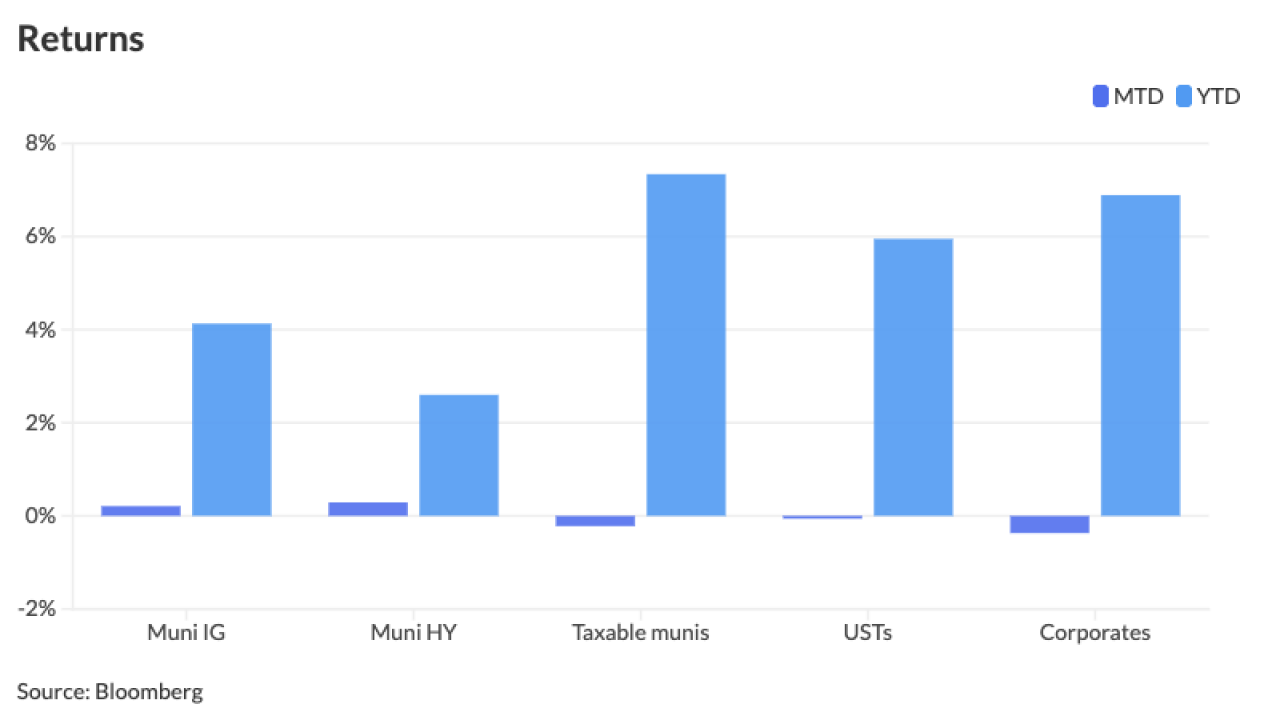Cook County, Illinois' pension funding woes remain a drag on the county’s credit profile.
S&P Global Ratings downgraded the county’s general obligation rating to A-plus from AA-minus Friday and assigned a stable outlook. The county has about $2.8 billion of GOs outstanding.
Because the county’s sales tax rating on $414 million of debt is linked to the GO rating, S&P downgraded that rating to AA-minus from AA with a stable outlook.

"The downgrade reflects the county's large and underfunded pension obligation and although the county has made steps to address its pension funding levels — specifically with a new sales tax revenue stream beginning in fiscal 2016 that significantly increased its annual contributions — its ability to meet its planned additional payments over the long term will remain an ongoing challenge, in our view,” said analyst Blake Yocom.
“Even with these additional payments, in our view, contributions fall well short of both static funding and minimum funding progress, in part because of poor assumptions and methodologies,” Yocom added. The plan assumes a rate of return of 7.25%, but S&P said 6.5% would be more reasonable.
The size of the liability, lack of significant funding progress since the adoption of the supplemental contribution above what’s set in state statute, and the county’s rising fixed costs drove the downgrade that drops the county that includes Chicago from the double-A category.
“While we are disappointed with the decision to downgrade the Cook County's Sales Tax and General Obligation Bonds, we are pleased to see S&P praise our strong management and financial practices as well as our actions to address legacy debt,” said county finance spokesman Edward Nelson in an emailed statement.
“We remain committed to building on the progress we have made over the years of passing balanced budgets, addressing our legacy debt, tackling pension obligations and working to secure the county’s financial future,” Nelson said.
No deals are currently in the works but the county will be exploring both refunding and new money opportunities by the summer, Nelson said.
The county’s stable budgetary operations held the downgrade to one notch and the stable outlook is due to the expectation that Cook will maintain its strong reserve levels even as pension challenges persist.
“Given the plans' assumptions and methods and very low funded ratio, costs are certain to rise and will be a continuing challenge for the county —particularly given the reduced flexibility caused by overlapping entities, in our view,” S&P said.
The county’s pension plan is 45.4% funded with net pension liabilities of $12 billion. The county also has a $2.1 billion unfunded other post-employment liability, S&P said.
The county’s statutory contributions total about $200 million in the current budget, but the county will make an additional contribution of $327 million in 2020 from sales tax collections, bringing to $1.3 billion the amount of additional contributions made in recent years.
The county raised the sales tax in 2016 to fund the annual supplemental contribution under an intergovernmental agreement with its pension fund. The county is still seeking state legislative approval to revise the formula.
Because future supplemental contributions are not guaranteed until state lawmakers act, the current actuarial results don’t recognize the county’s commitment and current estimates indicate an insolvency date of 2038.
The county’s healthcare operations also remain a budgetary pressure point due to growing uncompensated care, a red flag discussed during 2020 budget negotiations ahead of the board’s adoption of the county president Toni Preckwinkle’s $6.2 billion budget for the fiscal year that began Dec. 1.
Uncompensated health care costs are projected to rise by $46 million next year to $590 million due in part to unaffordable, high-deductible health insurance plans offered on the insurance marketplace created by the federal government’s Affordable Care Act.
Fitch Ratings rates the county A-plus with a stable outlook. Moody’s Investors Service assigns its A2 rating and stable outlook.





